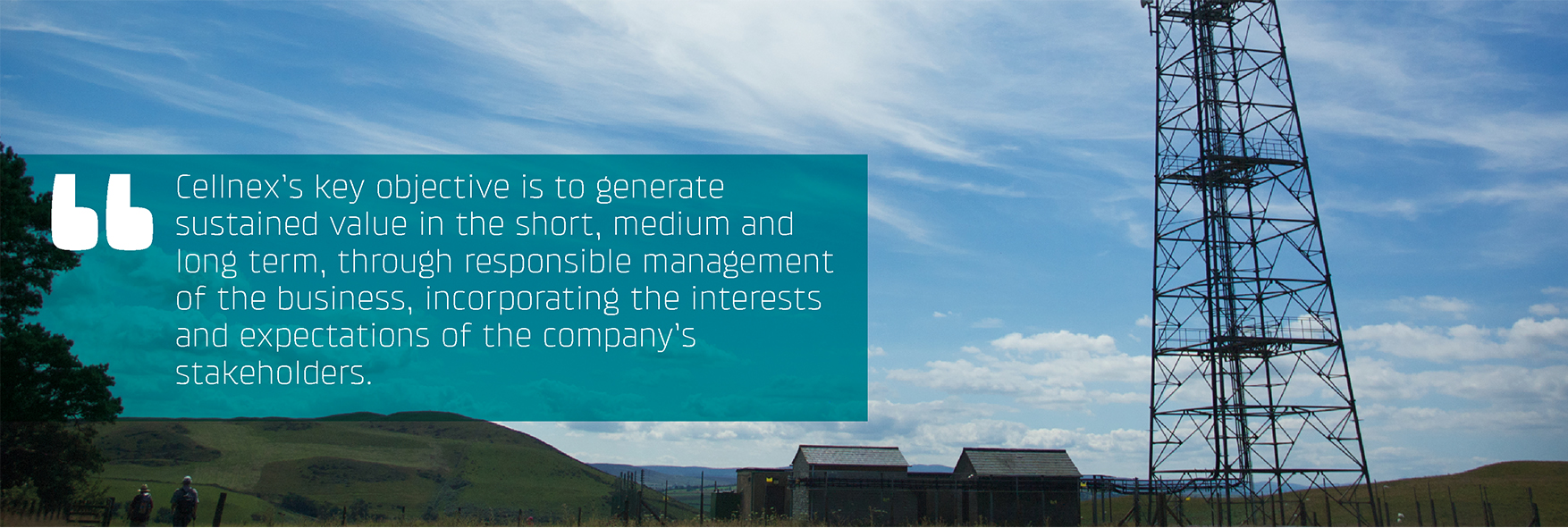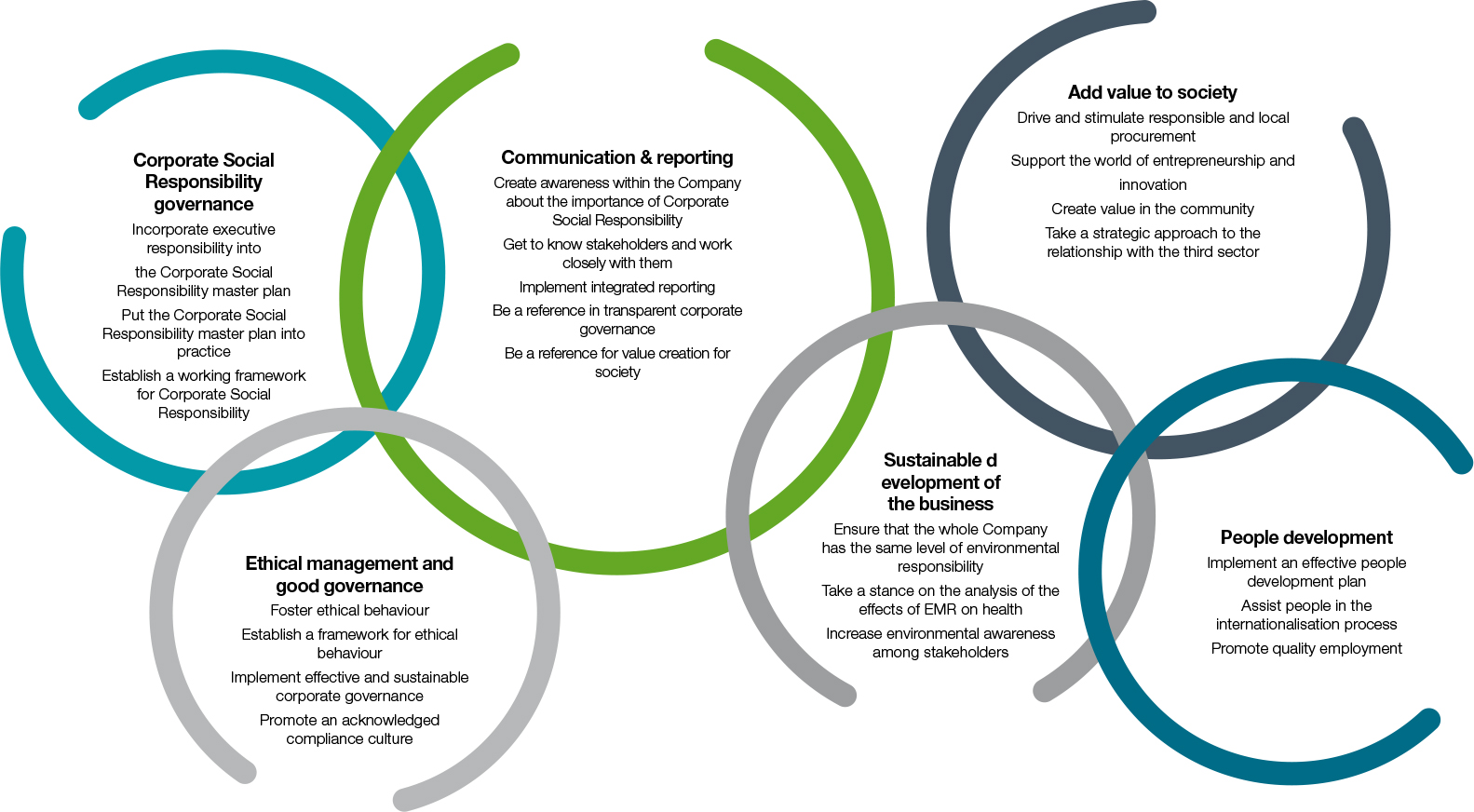Cellnex's Corporate Responsibility framework


Cellnex's key objective is to generate sustained value in the short, medium and long term, through responsible management of the business, incorporating the interests and expectations of the company’s stakeholders.
In 2016, the Board of Directors approved the Corporate Responsibility (CR) policy, which includes Cellnex's CR strategy and commitment to the application of best practices in the countries in which it operates and on the basis of international reference standards. This commitment is developed in the company's 2012-2020 CR Master Plan, which constitutes the reference framework and the tool for systematising the strategic objectives, monitoring indicators and the actions and programmes underway for each of the axes of the Plan. Specifically, the plan consists of six areas of action:
The CR Plan incorporates the best experiences of the Cellnex group companies as well as new proposals for building a better organisation day by day. With this Master Plan, Cellnex aims to create an instrument bringing together all the company's ethical, environmental and social initiatives, further establishing a long-term vision, setting commitments in accordance with internationally recognised standards that place it on the same level as the major infrastructure companies operating in Europe, specifically in the telecommunications sector. This plan also aims to improve two-way dialogue between Cellnex and all stakeholders, especially the company’s staff team, customers, suppliers and contractors, administrations, shareholders, the community and partners in shared projects.
In 2017, Cellnex Telecom published a declaration on Slavery and Human Trafficking Statement in response to the United Kingdom Modern Slavery Law, which condemns any practice of labour exploitation and pledges to prevent it both in its activity and its supply chain. This commitment is developed through the Group's Corporate Responsibility Policy, which sets basic guidelines and lines of action in this area. Likewise, Cellnex's Code of Ethics expresses its commitment to complying with human rights and expresses its total rejection of child labour and forced or compulsory labour, and undertakes to respect freedom of association and collective bargaining. In the supply chain, Cellnex evaluates its most critical suppliers in terms of human rights on an annual basis. In addition, in 2017 Cellnex drew up the Purchase Policy that establishes the obligation for its suppliers to comply with protection and respect for Human Rights and to be familiar with the Code of Ethics and share it with its employees and subcontractors.
CSR Master Plan 2016-2020 and degree of progress.
In 2017 great efforts were made to implement the various goals and actions included in the Master Plan. The degree of implementation of these is shown below:
| CSR 2016-2020 Master Plan |
|
| Action Areas | No. Action lines | No. Lines under development | No. of actions | Attainment of the various actions |
| Ethical management and good governance | 5 | 100% | 21 | 81% |
| People development | 6 | 83% | 9 | 44% |
| Sustainable development of the business | 9 | 100% | 17 | 47% |
| Adding value to society | 5 | 40% | 9 | 22% |
| Communication and reporting | 10 | 70% | 13 | 62% |
| Governance of Corporate Responsibility | 3 | 100% | 13 | 54% |
| TOTAL | 38 | 82% | 82 | 52% |
GRI 102-11, 102-19, 102-20, 102-34




